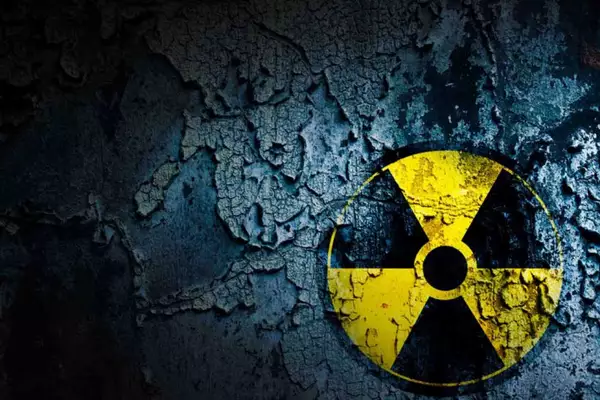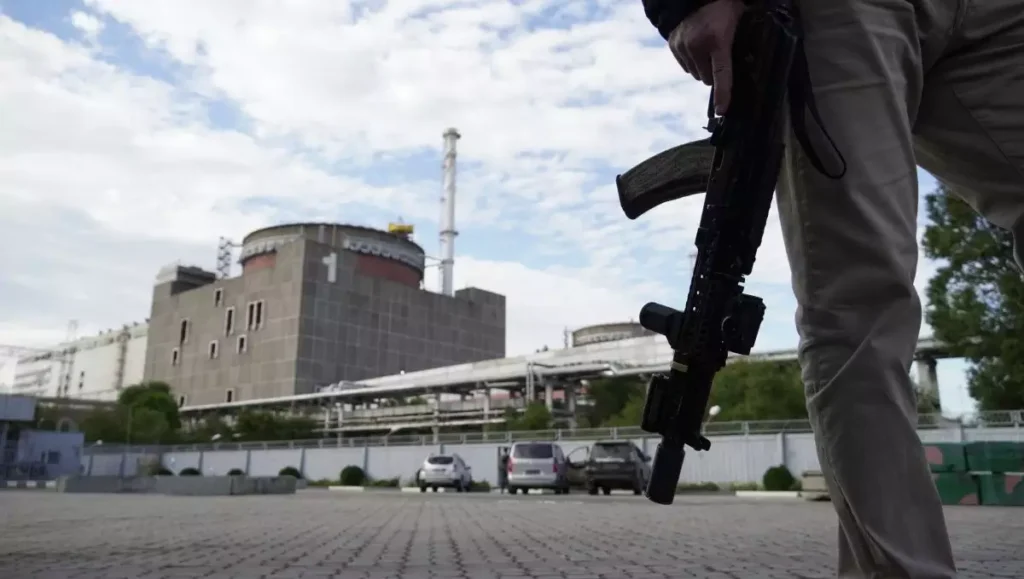Russia’s state-owned energy group Rosatom accused Ukraine of committing “nuclear terrorism” after a fire broke out at the Russian-occupied Zaporizhzhia Nuclear Power Plant (ZNPP).
What is Nuclear Terrorism?
- Nuclear terrorism refers to the use or threat of using nuclear weapons or radioactive materials by non-state actors, such as terrorist groups, to cause widespread fear, death, and destruction for political or religious purposes.
- The primary aim of nuclear terrorism is to create terror and coerce governments or international bodies into making decisions that align with the terrorist’s agenda.
Potential Threats:
Radiological Dispersion Devices (Dirty Bombs):
- These devices combine conventional explosives with radioactive material to contaminate an area with radiation, causing panic, long-term health issues, and substantial economic damage.
Attacks on Nuclear Facilities:
- Terrorists could sabotage nuclear reactors or other nuclear infrastructure, leading to radiation leaks or even meltdowns, which could affect vast areas and populations.
Nuclear Bombs:
- The most extreme scenario involves terrorists acquiring or fabricating a nuclear bomb.
- Although the likelihood of this is low, even a small, crude nuclear device, such as a 1-kiloton bomb (equivalent to 1,000 tons of TNT), could cause mass casualties and long-lasting environmental contamination.
Nuclear Terrorism Incidents
- Illicit Trafficking and Theft: Since 1993, the International Atomic Energy Agency (IAEA) has documented over 650 incidents of illicit trafficking and unauthorized possession of nuclear and other radioactive materials.
- Radiological Dispersal Devices (Dirty Bombs): No such bomb has been successfully detonated, there have been several attempts and plots.
- Sabotage and Attacks on Nuclear Facilities: There have been various incidents where nuclear facilities were targeted. For example, in 2007, the Pelindaba nuclear research facility in South Africa was breached by armed assailants.
Indian Efforts to Combat Nuclear Terrorism:
| India’s Efforts | Details |
| Atomic Energy Act of 1962 | Governs the use and development of atomic energy in India. Provides legal basis for regulating nuclear safety and security. |
| Weapons of Mass Destruction (WMD) Act, 2005 | Criminalizes unlawful acquisition, manufacture, and transport of WMDs, contributing to nuclear security. |
| Atomic Energy Regulatory Board (AERB) | Oversees safety and security of civilian nuclear facilities. Sets and enforces safety standards, conducts inspections, ensures compliance with safety regulations. |
| Central Industrial Security Force (CISF) | Provides physical security to nuclear installations, protecting them from potential threats. |
| National Design Basis Threat (NDB) Document | Outlines security threats to nuclear facilities. Guides in designing and implementing security measures. |
| Security Culture | Emphasizes the importance of a strong nuclear security culture within India’s nuclear industry. |
| Closed Fuel Cycle with ‘Reprocess to Reuse’ of Plutonium | Adopts a closed fuel cycle approach, enhancing fuel efficiency and reducing nuclear proliferation risk by minimizing waste. |
| Global Conventions | India is a party to all 13 international anti-terrorism conventions, including CPPNM and ICSANT, demonstrating its proactive role in global nuclear security initiatives. |
International Efforts to Combat Nuclear Terrorism:
| International Efforts | Details |
| Global Initiative to Combat Nuclear Terrorism (GICNT) | A partnership of 88 nations working to enhance global capabilities for preventing, detecting, and responding to nuclear terrorism. Involves cooperation at national and international levels. |
| World Institute for Nuclear Security (WINS) | Collaborates with IAEA to prevent nuclear terrorism by improving the security of nuclear materials and facilities globally. |
| UN Global Counter-Terrorism Strategy | Calls on Member States to combat smuggling of radiological and nuclear materials, emphasizing border security and preventing unauthorized access. |
| International Convention for the Suppression of Acts of Nuclear Terrorism (ICSANT) | Criminalizes the unlawful possession, use, or threat of radioactive material. It is a key legal tool against nuclear terrorism. |
| Convention on the Physical Protection of Nuclear Material (CPPNM) | Establishes legal obligations to protect nuclear materials during international transport and ensure their physical protection against theft or sabotage. |
| IAEA’s Seven Pillars for Nuclear Safety and Security During Conflict | Outlines critical pillars such as maintaining safety system integrity, secure communication, reliable electricity, and proper staff functioning, especially during conflicts. |
Ref: Source
| UPSC IAS Preparation Resources | |
| Current Affairs Analysis | Topperspedia |
| GS Shots | Simply Explained |
| Daily Flash Cards | Daily Quiz |
Frequently Asked Question:
What is the definition of nuclear terrorism?
Nuclear terrorism refers to the use, threat, or sabotage involving nuclear materials, such as nuclear weapons or radioactive substances, by non-state actors like terrorist groups, with the intent to cause mass destruction, fear, and destabilization.
What is the relationship between nuclear energy and terrorism?
The relationship between nuclear energy and terrorism is rooted in the potential misuse of nuclear materials and technology. Terrorists could target nuclear facilities, steal nuclear materials, or create “dirty bombs” to spread radioactive contamination.
What are the different types of nuclear terrorism?
The types of nuclear terrorism include: (1) the theft and detonation of a nuclear weapon, (2) the construction of an improvised nuclear device, (3) the use of radioactive materials in a “dirty bomb,” and (4) sabotage of nuclear facilities to release radiation.
How can we prevent nuclear terrorism?
Preventing nuclear terrorism involves securing nuclear materials at their source, enhancing international cooperation, improving detection and response capabilities, and strengthening legal frameworks to prevent the trafficking and unauthorized use of nuclear materials.
What are the effects of nuclear terrorism?
The effects of nuclear terrorism would be catastrophic, including massive loss of life, long-term environmental damage, widespread panic, economic disruption, and severe political and social instability.



